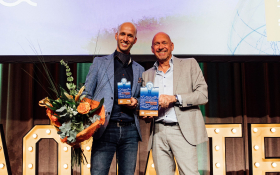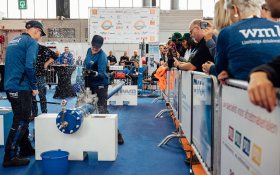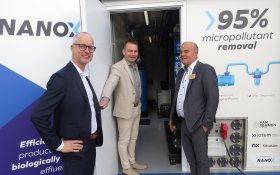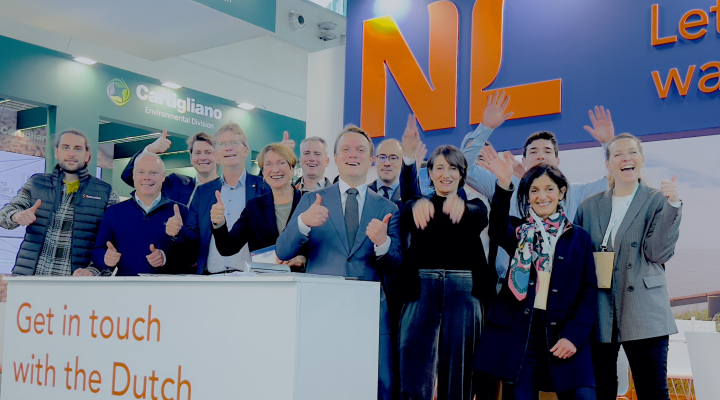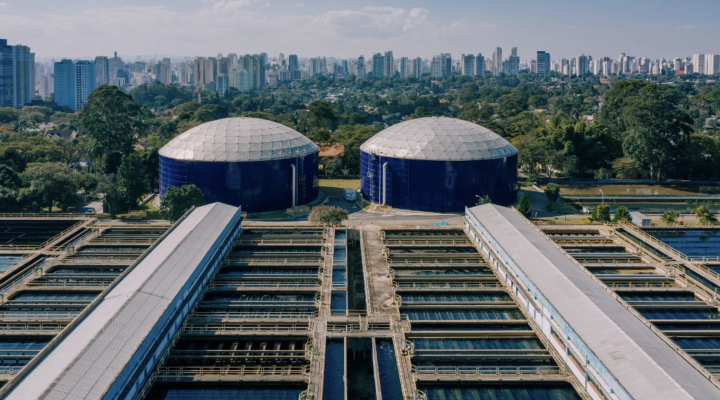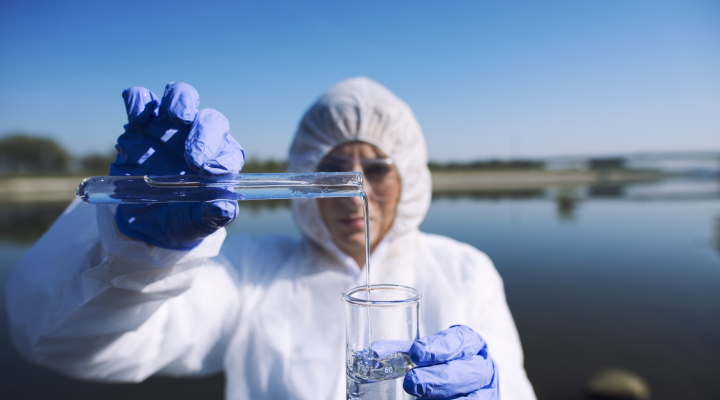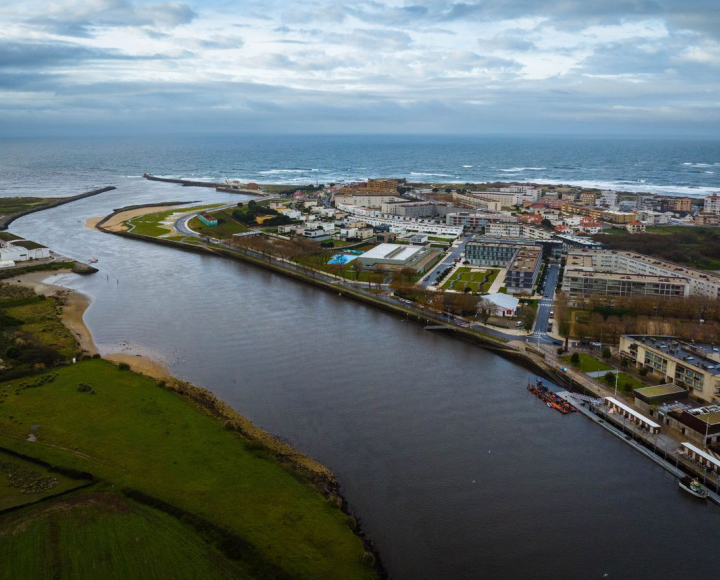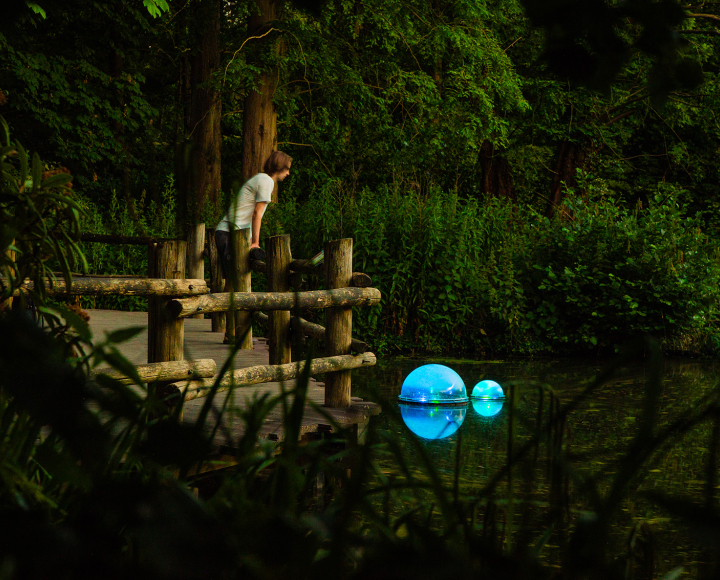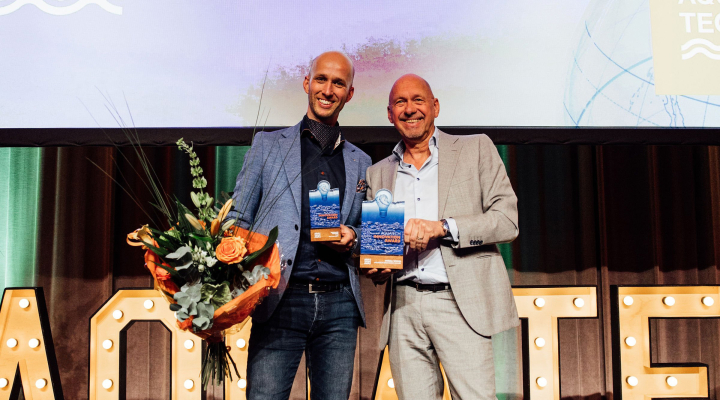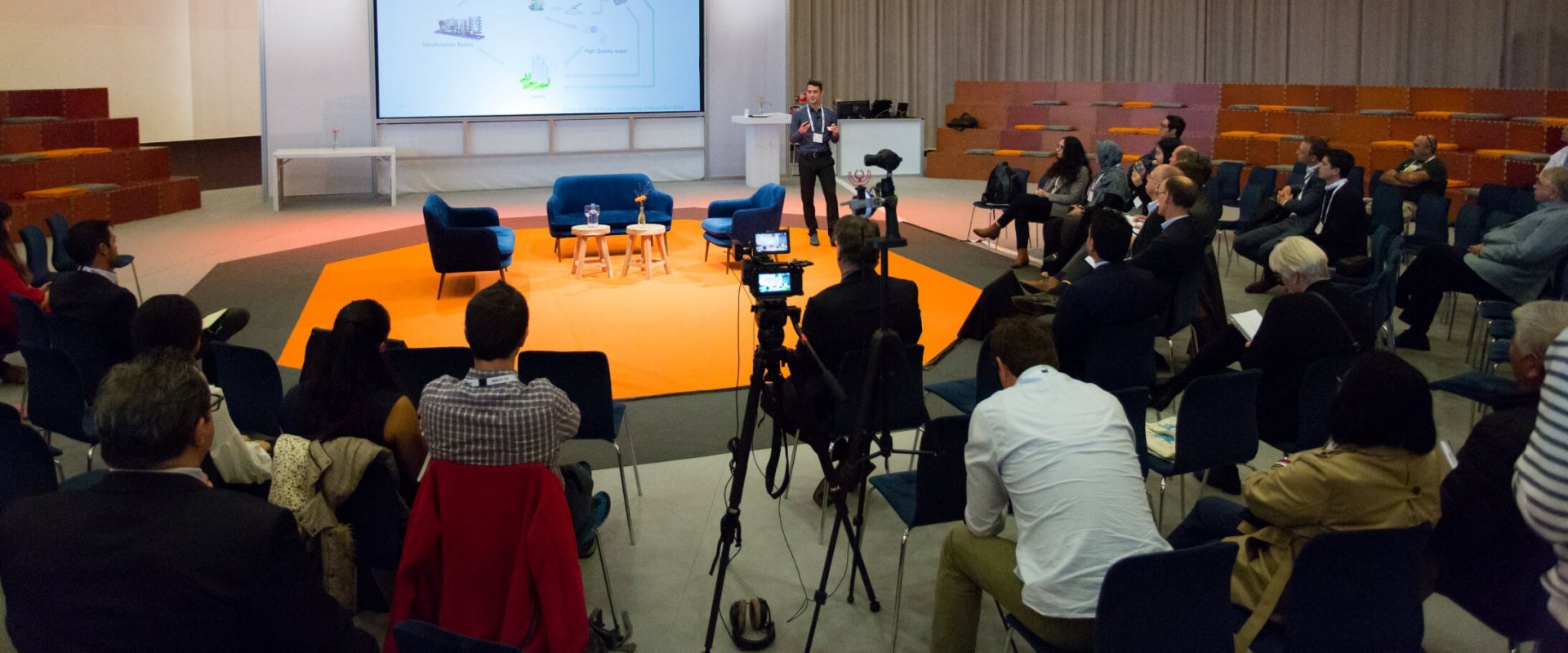
AIWW2019: Winning idea Brine Challenge transforms brine in building blocks
At a special event held during the Amsterdam International Water Week, the first-place trophy of the international Brains for Brine Challenge was handed out to the Wetsus Academy team that pitched an idea to produce eco-friendly building blocks from the brine that remains from desalination.
Five entries pitched their ideas in Amsterdam on 5 November. Three winners received a cheque of 10,000 US dollar each.
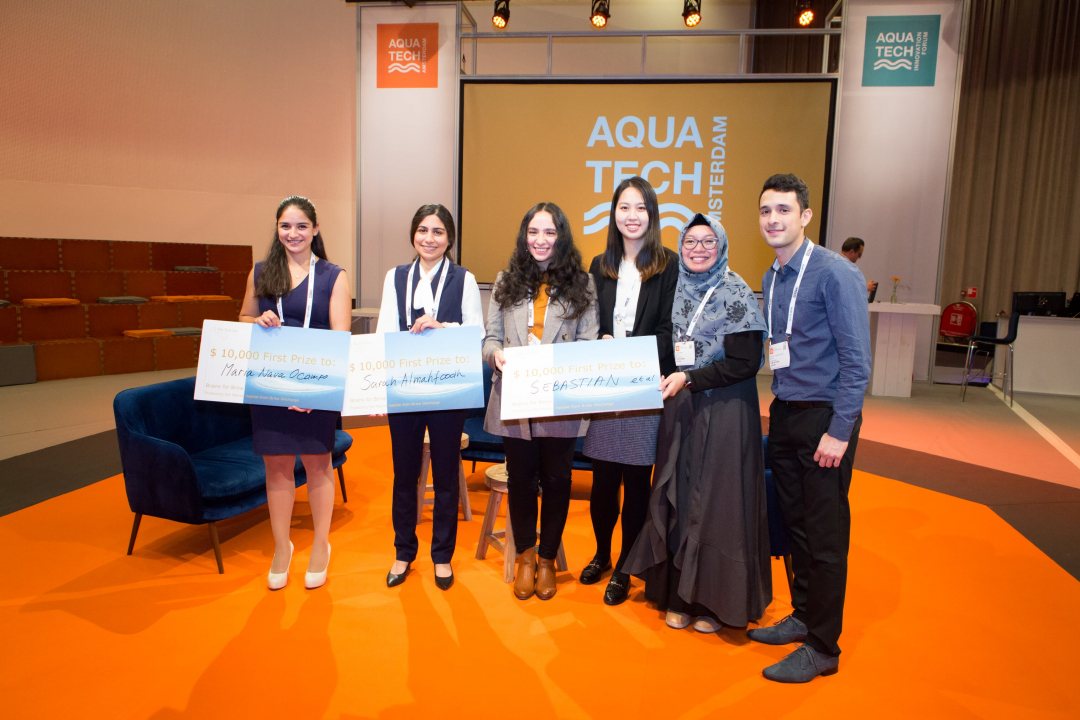

Avoid disposal of brine
The challenge was organized by The Red Sea Development Company (TRSDC) and King Abdullah University of Science and Technology (Kaust) to find new solutions to manage the sustainable disposal of brine, a waste product of water desalination.
TRSDC has started construction of a large tourist resort in Saudi Arabia along the Red Sea and is looking for environmental friendly ways to dispose the brine that remains from the desalination of sea water.
The resort wants to protect the coral reefs by avoiding brine discharge into the red sea. Brine produced from desalination processes can cause bleaching and loss of the coral reefs.
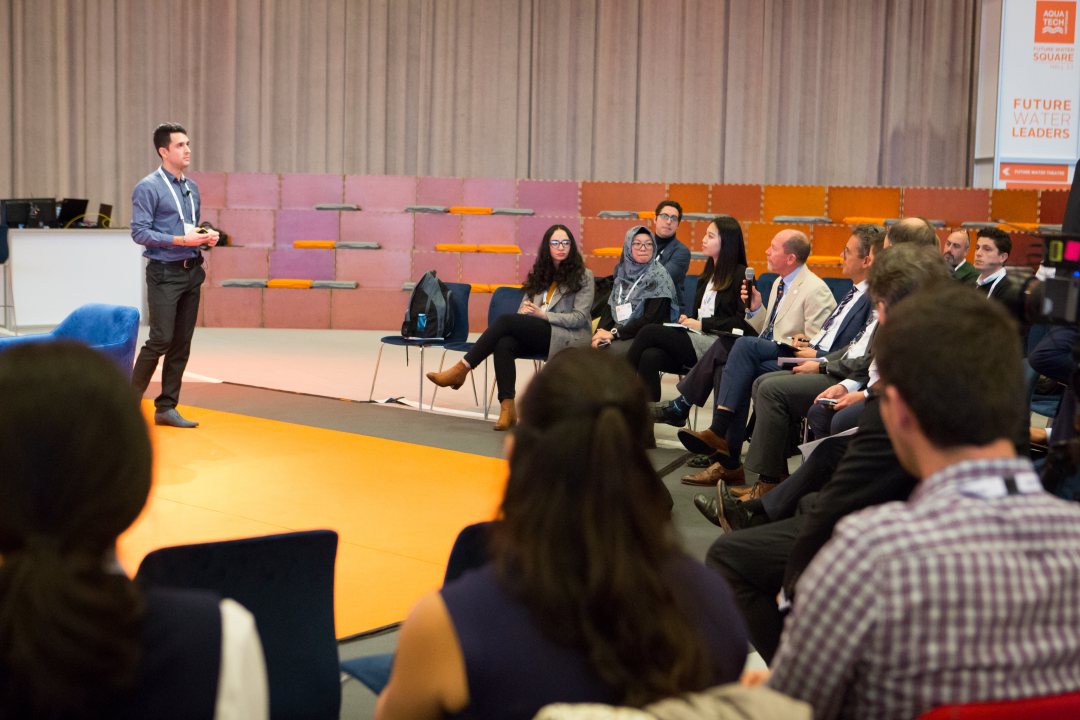

Winners
The first-place winning entry was ‘Molding the Future with Salt’ by Sebastian Castano (Colombia), Shihan Lou (China), Indah Puspita (Indonesia), and Nouran Bahgat (Egypt) from the Wetsus Academy in the Netherlands. Their system comprises a bio-based desalination process (algae pond) in combination with a Mechanical Vapor Recompression (MVR).
Second place winners included ‘Red to Dead - Brine saves the Dead Sea’ by Sarah Almahfoodh (Saudi Arabia) and professor Noreddine Ghaffour from KAUST, who proposed transporting brine from the Red Sea to the Dead Sea.
The third-place winning entry was ‘Valorisation of brine using pellet-softening as pre-treatment’ by Maria Nava Ocampo (Mexico) from KAUST, who advocated breaking down brine into its constituent components for reuse in other industries.
The three front-runners are now in the running for additional support through potential piloting of their ideas in partnership with The Red Sea Development Company.
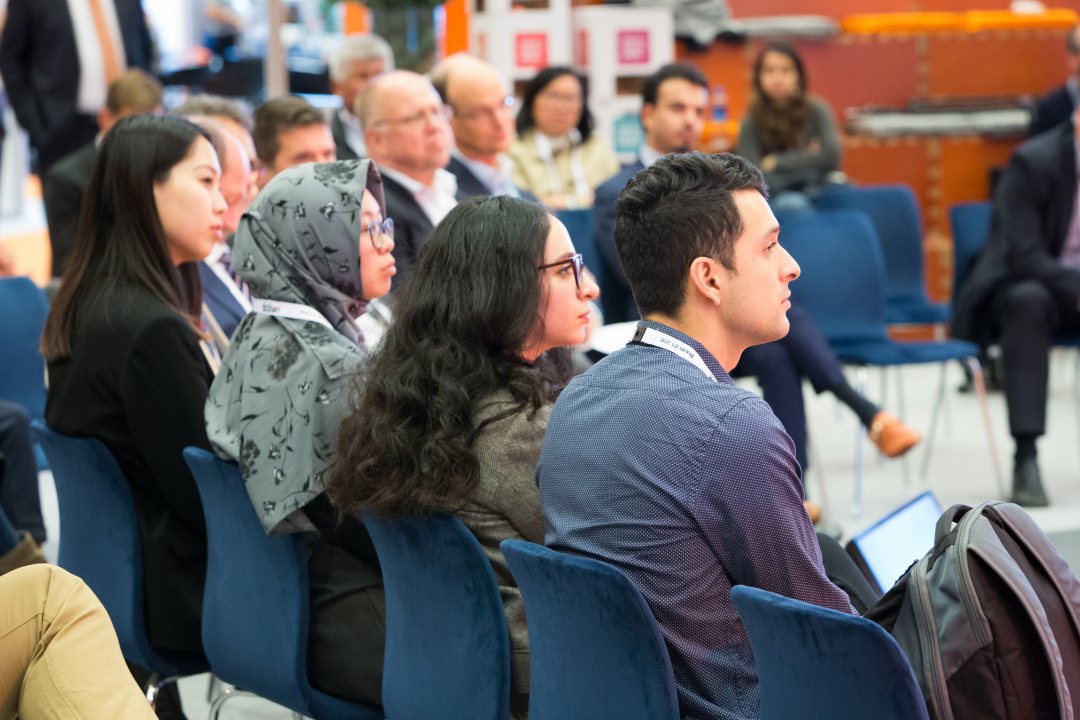

Impact on whole Gulf region
‘Identifying a commercially viable method to manage brine from water desalination in a more sustainable manner will have enormous implications for Saudi Arabia and for the broader Gulf region’, said John Pagano, CEO of TRSDC.
Pagano: ‘The Red Sea Development Company is proud to be working with visionary thinkers who share our commitment to environmental sustainability and to creating new solutions for long-standing challenges'.
Truly innovative
‘Solving the issues associated with brine disposal is a significant challenge’, said Prof. Hans Vrouwenvelder, Director of the KAUST Water Desalination and Reuse Center. ‘The jury was impressed with the high standard of entries we received. All of the winners have demonstrated truly innovative ideas that have the potential to make a meaningful difference.’
Over 125 ideas were submitted from across the globe as part of the challenge. After a comprehensive selection process, five nominees were selected to present their ideas at the Aquatech 2019 event.




